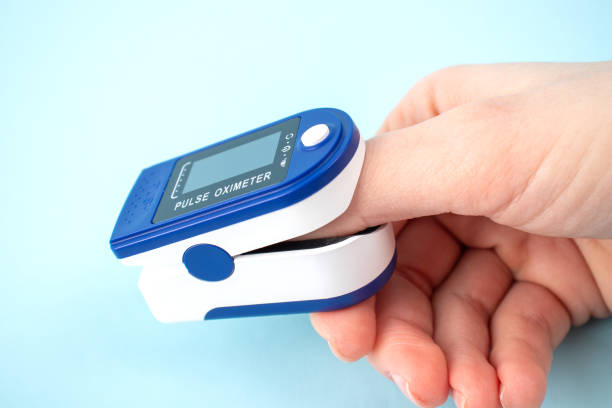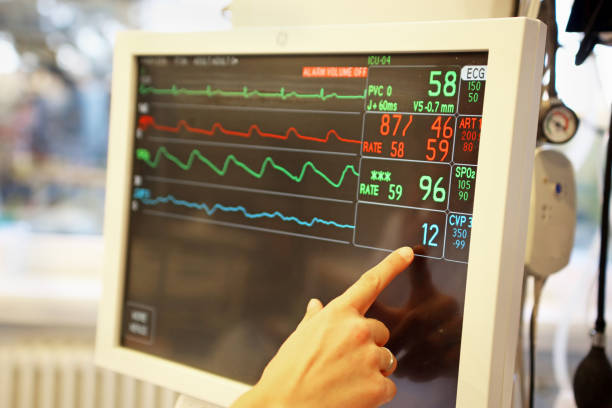What does RR mean in medical terms? In this article, you will know more about what it stands for and how to cure this kind of condition.
What Does RR Mean In Medical Terms?

The answer is that it stands for respiratory rate. This is the number of breaths per minute that a person takes. Between 12 to 20 breaths per minute are considered normal for an adult while they are resting. If a person’s breathing is too fast, it is called tachypnea. If it is too slow, it is called bradypnea.
Many things can affect a person’s respiratory rate, including exercise, emotions, altitude, and medications. Certain medical conditions can also cause changes in respiratory rate. For example, anxiety or panic attacks may cause someone to breathe faster than normal. Asthma, on the other hand, can cause someone to have a slower respiratory rate. It is important to note that children and infants typically have faster respiratory rates than adults do.
This is because their bodies are still growing and developing and they generally have higher metabolism rates. If you are concerned about your respiratory rate, or if you think it may be outside of the normal range, you should speak with your doctor. They will be able to provide you with more specific information and help you determine if there is cause for concern.
Interesting Read: When To Go To ER For Fever?
What Is The Respiratory Rate For Children?
Respiratory rate is the number of breaths per minute. The normal rate for children is higher than that of adults. The average respiratory rate for a baby is about 30 to 60 breaths per minute. For a toddler, the average is breathing 24 to 40 a minute.
For school-age children, the average is breathing 20 to 30 times a minute. The normal rate for children varies depending on age, activity level, and health. If your child has a cold or other illness, their respiratory rate may be higher than usual. However, if your child’s respiratory rate is significantly higher than normal or they are having difficulty breathing, this could be a sign of a more serious condition and you should seek medical attention immediately.
Respiratory rates can also vary depending on whether a child is awake or asleep. Children typically have a lower respiratory rate when they are sleeping. Newborns and infants may have periods of apnea (brief pauses in breathing) during sleep.
This is normal and usually does not require treatment. However, if you are concerned about your child’s breathing, it is important to speak with their doctor. They will be able to determine if there is cause for concern and provide you with the appropriate treatment.
What Are Some Common Causes Of High Respiratory Rate?
Many different things can cause a high respiratory rate. Some common causes include:
- Anxiety or panic attacks
- Asthma
- COPD (Chronic Obstructive Pulmonary Disease)
- Exercise
- Heart failure
- Infections, such as pneumonia or bronchitis
- Smoking
If you are concerned about your respiratory rate, or if you think it may be outside of the normal range, you should speak with your doctor. They will be able to provide you with more specific information and help you determine if there is cause for concern.
Interesting Reads: What Does SOB Mean In Medical Terms?
What Are Some Common Causes Of Low Respiratory Rate?
Many different things can cause a low respiratory rate. Some common causes include:
- Aging
- Congestive heart failure
- Hypothyroidism
- Medications, such as beta-blockers or sedatives
- Obesity
- Shock
If you are concerned about your respiratory rate, or if you think it may be outside of the normal range, you should speak with your doctor. They will be able to provide you with more specific information and help you determine if there is cause for concern.
How Can I Check My Respiratory Rate At Home?

Checking your respiratory rate at home is easy and only requires a few materials. To accurately check your respiratory rate, sit up straight and placed the tips of your first two fingers on the lower side of your neck, just above your collarbone. You should feel your pulse beneath your fingers.
Once you have located your pulse, begin counting the number of times your heart beats in one minute. This is your heart rate. Next, count the number of breaths you take in one minute. This is your respiratory rate. If you find that you are having difficulty counting both numbers accurately, try using a stopwatch to time yourself for one minute.
Once you have your respiratory rate, it is important to keep track of it over time so that you can see if there are any changes. Checking your respiratory rate regularly is a good way to monitor your health and see if you need to seek medical attention.
Interesting Read: Why Is It Called Plastic Surgery?
What Are Some Treatments For An Abnormal Respiratory Rate?
Abnormal respiratory rates can be caused by a variety of factors, including anxiety, asthma, heart failure, and sleep apnea. Treatment for an abnormal respiratory rate will vary depending on the underlying cause. For example, if anxiety is the cause, treatment may involve therapy and relaxation techniques.
If asthma is the cause, treatment may include medications to control airway inflammation. If heart failure is the cause, treatment may involve diuretics to reduce fluid buildup in the lungs. And if sleep apnea is the cause, treatment may involve the use of a continuous positive airway pressure (CPAP) machine.
In some cases, more than one treatment may be necessary to control an abnormal respiratory rate. For example, a person with anxiety and asthma may need both medication and therapy. However, with proper diagnosis and treatment, most people with an abnormal respiratory rate can lead healthy and normal lives.
When Should I See A Doctor?

You should see a doctor if you are concerned about your respiratory rate or if you think it may be outside of the normal range. Your doctor will be able to provide you with more specific information and help you determine if there is cause for concern.
They may also recommend you get a chest x-ray or other tests to rule out any underlying conditions. If your doctor does find an underlying condition, they will work with you to develop a treatment plan. This may include medications, lifestyle changes, or surgery.
Interesting Read: How Much Does Anesthesia Cost?
Conclusion
In conclusion, the term “RR” in medical terms stands for respiratory rate. This is the number of breaths per minute that a person takes. A normal rate for an adult at rest is between 12 and 20 breaths per minute. Many things can affect a person’s respiratory rate, including exercise, emotions, altitude, and medications. Certain medical conditions can also cause changes in respiratory rate. If you are concerned about your respiratory rate, or if you think it may be outside of the normal range, you should speak with your doctor. They will be able to provide you with more specific information and help you determine if there is cause for concern.
